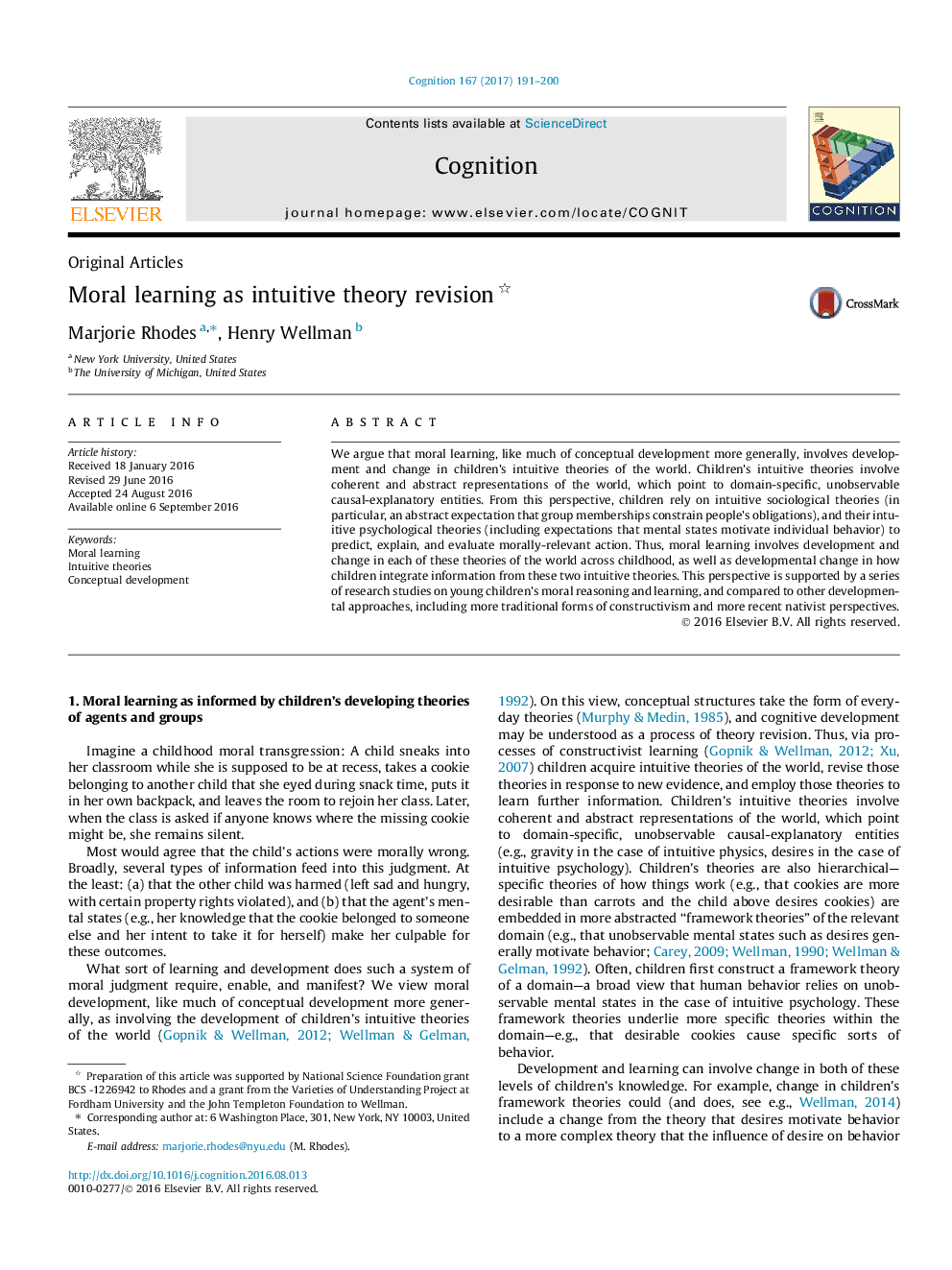| Article ID | Journal | Published Year | Pages | File Type |
|---|---|---|---|---|
| 5041489 | Cognition | 2017 | 10 Pages |
â¢Moral learning is described as a process of intuitive theory revision.â¢Development involves change in children's psychological and sociological theories or in their integration.â¢This perspective is compared to other theoretical approaches.
We argue that moral learning, like much of conceptual development more generally, involves development and change in children's intuitive theories of the world. Children's intuitive theories involve coherent and abstract representations of the world, which point to domain-specific, unobservable causal-explanatory entities. From this perspective, children rely on intuitive sociological theories (in particular, an abstract expectation that group memberships constrain people's obligations), and their intuitive psychological theories (including expectations that mental states motivate individual behavior) to predict, explain, and evaluate morally-relevant action. Thus, moral learning involves development and change in each of these theories of the world across childhood, as well as developmental change in how children integrate information from these two intuitive theories. This perspective is supported by a series of research studies on young children's moral reasoning and learning, and compared to other developmental approaches, including more traditional forms of constructivism and more recent nativist perspectives.
